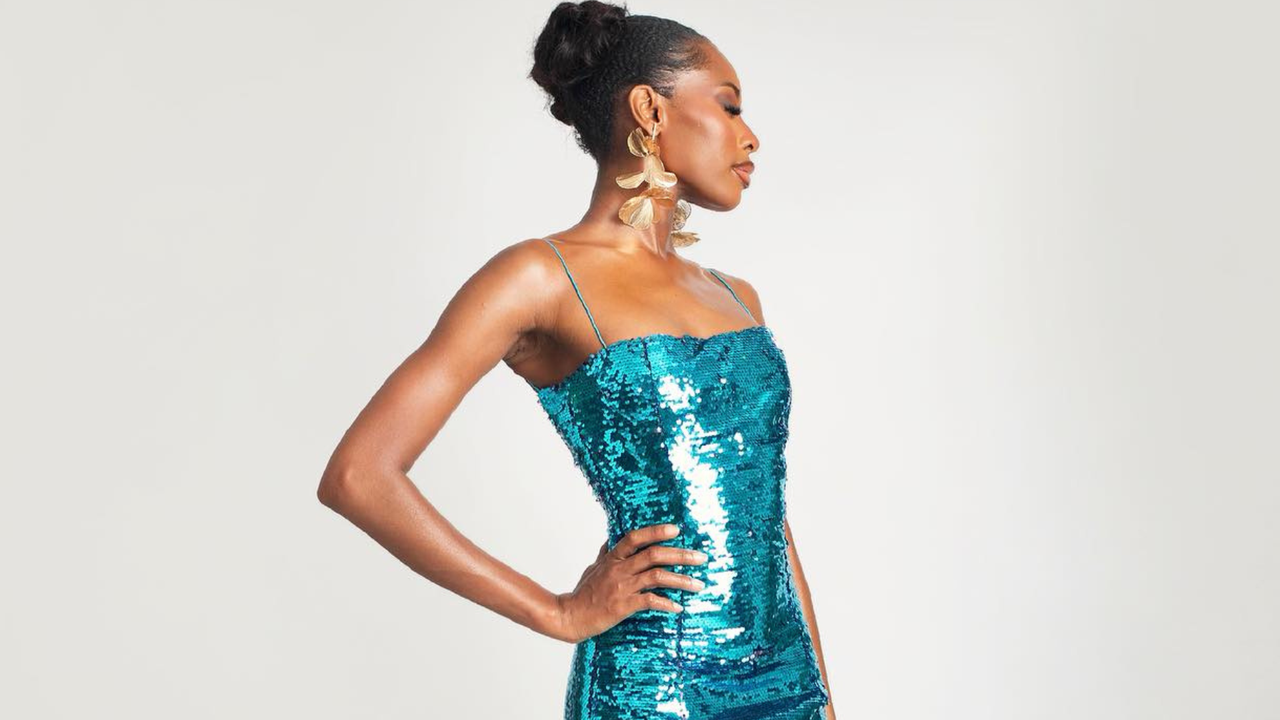When Beatrice Korlekie Newman, an African designer, had an opportunity to showcase her eponymous designs at New York Fashion Week last September, she saw it as a momentous moment in her career. Over a Zoom call, she candidly tells me that many African designers complain about the lack of funds and assistance from gatekeepers. The lack of support she says makes it tough for them to produce items in commercial quantities and nearly impossible for them to compete with foreign brands.
In the ever-evolving landscape of the global fashion industry, African luxury brands, once sidelined, now command attention and admiration on the world’s most prestigious runways and in the pages of renowned publications.
Korlekie, a British-Ghanaian label is an example of the previously mentioned system not supporting African designers. Newman says that though she’s been building her brand for over 10 years she’s been made to feel that her product isn’t viable. She expresses that this notion is untrue. Though she’s dealt with negative experiences, she instead has created a business model to garner consistent sales from her loyal customers.
 Korlekie
KorlekieNewman has since successfully designed knitted products that align with what her customers are yearning for while evolving her brand messaging. “[I had to] rethink my product offering and evolving the products commercially. Whilst this is a good thing and I am very happy with where my brand is going, I’ve learned a lot.” The designer notes that her experiences have also been shaped by being suppressed and conforming to a system she says wasn’t built to support or elevate her.
According to designers like Kanyinsola Onalaja of Onalaja, the transition to garments made on the African continent being legitimized and supported in America stems from a few factors. She says it’s a result of the growing demand for diverse craftsmanship, especially as the fashion world shifts towards storytelling and sustainability. She feels the involvement of high-profile individuals, celebrities, and influencers wearing African designers has boosted the global prestige and appeal of African brands too.
 Onalaja
OnalajaThe modern depictions of Africa in popular culture, from film to music, have contributed significantly to this shift, particularly with African films on Netflix. In recent years, the platform has been steadily portraying accurate images of fleshed-out narratives and characters who are taking up space–they’re not sidekicks–they are lead characters with major storylines.
With the mainstreaming of music from the continent, the growth of brands with skilled designers and artisans who develop brands into household names seemed inevitable. The rise of acts including Wizkid, Tems, and Tyla in America over the past five years speaks to how Afrobeats and Amapiano are a gateway for global fans to understand that there is an innate brilliance and sense of innate creativity that exists on the African continent outside of music. Notably, these key artists also utilize fashion as a means of self-expression, this notion isn’t to be taken lightly.
Large fashion capitals, such as Paris, welcome and introduce more brands from the African diaspora. For example, The Folklore Connect offered 10 designers from Ghana, Nigeria, Côte d’Ivoire, and more an opportunity to present their collections in a showroom during Paris Fashion Week last year. Amira Rasool, the founder and CEO of The Folklore Group spearheaded this initiative as a way to grant access for these designers to cultivate relationships with buyers, editors, and influential fashion figures in Paris. This business decision and others that are similar will inherently influence larger trends and society at large.
 Onalaja
OnalajaBeneath the surface of the opulence and style, lies the major challenge of finance and conservation. According to a UNESCO report, Africa’s fashion industry currently boasts exports valued at $15.5 billion annually, a figure that holds the potential to triple within the next decade provided there is adequate investment and infrastructure. With the continent’s youthful population expected to double by 2050, the fashion sector emerges as a potent catalyst for fostering cultural diversity and empowering the continent’s youth and women.
Kanyinsola, who is also the creative director behind her Lagos-based eponymous brand shares insights into the challenges faced, including limited access to global markets and stereotypes about African fashion. “Overcoming these obstacles involved leveraging digital platforms to reach a wider audience, persistently showcasing the diversity and richness of African design, and building strong networks with artisans and suppliers for quality materials,” she says. Additionally, she has been a part of showrooms spearheaded by The Folklore Group in addition to the Black In Fashion Council Discovery Showroom to strengthen her brand’s presence in the United States.
Founder of the Nigerian brand Rendoll, Reni Abina, shares insights on how tough it is to keep up with the demand for her garments at times. “In terms of the ability to ship our products internationally, for example, shipping costs are almost the cost of the clothes which can be very discouraging for consumers.” She shares that DHL, the global shipping company currently charges a minimum of 70,000 Nigerian Naira to ship a box weighing 2 kilograms to America. Which Abina says in itself can be daunting.
 Rendoll
RendollThe challenges have been met with solutions as platforms like Lagos Fashion Week, The Folklore Group and the Black In Fashion Council have risen to meet the gaps in the market by elevating African luxury fashion brands and Black designers alike on the global stage. Both aim to showcase the immense talents and creativity of designers of Black and African origin who are often underrepresented in the global fashion market. These experiences not only offer valuable exposure but also challenge global perceptions.
As the buzz around African luxury clothing companies and mid-priced brands grows, it aligns with the trends of inclusivity, diversity celebration, and sustainable fashion. This isn’t just a passing phase or trend–it’s a significant shift in how fashion is perceived and enjoyed globally. Through fashion, African designers are reclaiming their narrative and proudly showcasing the beauty and diversity of the continent to the world.
